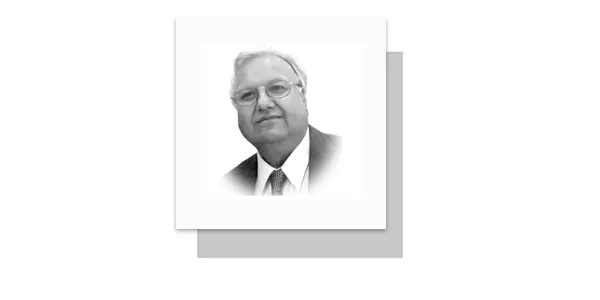IT had been decided that we would take a nap after lunch, but that never happened. Dr Zahid Majeed went to his room and I headed toward the Shehzade Mosque, which is said to stand on the four legs of an elephant.
I was still on the way when Atif Butt called to say he was arriving. Atif is a Pakistani journalist—an intelligent man. He quickly realized that journalism no longer offered sustenance, so he slung a rucksack over his shoulder and set off. One wonders what state of mind made Amir Minai say:
“Honor came to those who left their homeland.” Atif’s feet found a home in Istanbul and here he gained much respect. He now trades in Pakistani food items and not only introduces Turkish brothers to the flavor of Pakistani rice but exports it to Bulgaria and beyond. His only grievance is that everything he sells reaches here via Iran—a long story in itself. The point, however, is that while Dr. Zahid Majeed was taking a nap, I was wandering about. During this aimless stroll, I got in touch with Dr. Rashid.
Dr. Rashid is an assistant professor at Istanbul University and a white cane for newcomers. Wherever the language, routes and connections pose difficulties, he becomes a guide. Meeting the affectionate Rashid brought joy. As the Istanbul sun shyly sought refuge behind the horizon, the city transformed in the twilight. Some people headed toward Shehzadebashı Mosque, heralding a promise of welfare. The streets and parks, too, began to come alive. The haze turned cool and we, wearing loose jackets, followed Dr. Rashid. Suddenly, he stopped and asked:
“Did you see that?”“What haven’t we seen?” I asked, startled. We were passing the grand building of the Municipality (Belediyesi), guarded by a roaring lion. The lion reminded me of the Pakistan Muslim League-N and its leader. Interestingly, this municipality is now headed by opponents of President RecepTayyip Erdoğan, a friend of Nawaz Sharif. Perhaps that is why the mosques of the city no longer receive the same care. There was a time when Erdoğan’s portraits adorned the city and the carpets in the mosques didn’t appear so faded, nor the floral motifs so wilted. But Dr. Rashid was pointing elsewhere.
Adjacent to the Municipality building is a small garden, with a clear water pond that soothes the eyes. To the left of the pond, inside a glass room, five to seven figures could be seen. One was bent over a faucet, another had water dripping from cupped hands, one was washing his face and another had hands at his elbows. We would have passed this sight without paying much attention had Dr. Rashid not stopped us with his question. As we looked at the scene, Dr. Rashid showed us a photo of the same people. Our astonishment deepened. I had to ask: “What is this mystery, dear?” “What mystery?”
Dr. Rashid chuckled. “These are the On BeshTemmuzmujahideen.” It all came rushing back to me. On BeshTemmuz means 15th July. The Turks commemorate this day as the National Day of Unity and Democracy. It is the day when a faction within the Turkish military attempted a coup to topple the popular government of President Erdogan. People flooded the streets to save their democracy. Those living near the Fatih Municipality saw the streets tremble under the weight of tanks, their barrels turned toward civilians. A group rushed to this very artificial pond and began performing ablution (wudu). Their intention: to lie in front of the tanks, whatever the consequences—life or death. They considered it their final ablution. The figures we were seeing were statues of those very people.
Though merely statues, they deceived the eye. It truly felt like the one bent over the faucet would straighten up at any moment, or the one with cupped hands would soon rinse his mouth and wash his face. The sculptor had left nothing to be desired in skill—if it were in his power, he would have breathed life into them. The municipality had even framed a real photo of these brave souls beside the statues, forever capturing that moment of sacrifice. “Did any of them survive?” I asked, overwhelmed with admiration. Dr. Rashid said nothing. Instead, he led us to a nearby wall where hundreds of tiny photos glowed like candle flames in Istanbul’s fading evening. These were the martyrs who had laid down their lives on that very spot on 15 July 2016, to protect democracy. There were no more questions left. Dr. Zahid Majeed, more than just a teacher, is a sage. He blinked his contemplative eyes and said: “When a nation’s emotions are immortalized in such symbols, those emotions become a movement—and no usurper can dare test them again.”
—This writer is former advisor to the President of Pakistan, author & mass media theorist.
(farooq.adilbhuta@gmail,com)


















